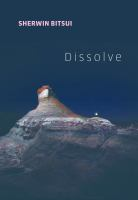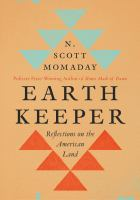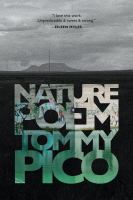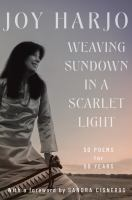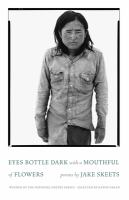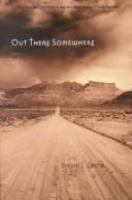April is National Poetry Month, and Mesa County Libraries is celebrating in more ways than one!
On April 24th at 5:30pm at the Central Library, we invite you to join the Poet Laureate of the Western Slope, Wendy Videlock, for a fantastic poetry workshop titled Planting the Seeds of Poetry. Additionally, winners for the library’s annual Poetry Contest will be announced by early May – thank you to all who submitted.
To celebrate poetry month further, here is a list of poetry books written by Native American authors who grace the pages with themes focusing on nature, colonialism, cultural rituals, spirituality, death, and natural resources. To learn more about these titles, click on the book covers below and visit our catalog. (All title descriptions are taken from the catalog.)
Drawing upon Navajo history and enduring tradition, Sherwin Bitsui leads us on a treacherous, otherworldly passage through the American Southwest. Fluidly shape-shifting and captured by language that functions like a moving camera, Dissolve is urban and rural, past and present in the haze of the reservation. Bitsui proves himself to be one of this century’s most haunting, raw, and uncompromising voices.
A History of my Brief Body by Billy-Ray Belcourt
Billy-Ray Belcourt’s debut memoir opens with a tender letter to his kokum and memories of his early life in the hamlet of Joussard, Alberta, and on the Driftpile First Nation. Piece by piece, Billy-Ray’s writings invite us to unpack and explore the big and broken world he inhabits every day, in all its complexity and contradiction: a legacy of colonial violence and the joy that flourishes in spite of it; first loves and first loves lost; sexual exploration and intimacy; the act of writing as a survival instinct and a way to grieve. What emerges is not only a profound meditation on memory, gender, anger, shame, and ecstasy, but also the outline of a way forward.
A History of Kindness by Linda Hogan
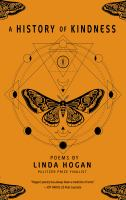
Linda Hogan explores new and old ways of experiencing the vagaries of the body and existing in harmony with earth’s living beings in A History of Kindness. Throughout this clear-eyed collection, Hogan tenderly excavates how history instructs the present, and envisions a future alive with hope for a healthy and sustainable world that now wavers between loss and survival.
Earth Keeper: Reflections on the American Land by N. Scott Momaday
‘When I think about my life and the lives of my ancestors, I am inevitably led to the conviction that I, and they, belong to the American land. This is a declaration of belonging. And it is an offering to the earth,’ Momaday writes. Earth Keeper is a story of attachment, rooted in oral tradition. Momaday recalls stories of his childhood that have been passed down through generations, stories that reveal a profound and sacred connection to the American landscape and a reverence for the natural world. In this moving work, he offers a homage and a warning. Momaday reminds us that the Earth is a sacred place of wonder and beauty; a source of strength and healing that must be protected before it’s too late.
Nature Poem follows Teebs – a young, queer, American Indian (or NDN) poet–who can’t bring himself to write a nature poem. For the reservation-born, urban-dwelling hipster, the exercise feels stereotypical, reductive, and boring. He hates nature. He prefers city lights to the night sky. He’d slap a tree across the face. He’d rather write a mountain of hashtag punchlines about death… he’d rather write odes to Aretha Franklin and Hole. While he’s adamant – bratty, even – about his distaste for the word “natural,” over the course of the book we see him confronting the assimilationist, historical, colonial-white ideas that collude NDN people with nature.
Weaving Sundown in a Scarlet Light: Fifty Poems in Fifty Years by Joy Harjo
In this selection of poems Harjo, a three-term US Poet Laureate, celebrates her fifty years as a poet. While musical, intimate, political and wise, they intertwine ancestral memory and tribal histories with resilience and love. From her early discoveries for her own voice to moving reflections of our contemporary movement, she offers poems on birth, death, love, and resistance – and everything they encompass.
Postcolonial Love Poem by Natalie Diaz
Natalie Diaz’s brilliant second collection demands that every body carried in its pages – bodies of language, land, rivers, suffering brothers, enemies, and lovers – be touched and held as beloveds. Through these poems, the wounds inflicted by America onto an indigenous people are allowed to bloom pleasure and tenderness: “Let me call my anxiety, desire, then. / Let me call it, a garden.” In this new lyrical landscape, the bodies of indigenous, Latinx, black, and brown women are simultaneously the body politic and the body ecstatic. In claiming this autonomy of desire, language is pushed to its dark edges, the astonishing dunefields and forests where pleasure and love are both grief and joy, violence and sensuality.
Eyes Bottle Dark with a Mouthful of Flowers by Jake Skeets
Rooted in Navajo history and thought, these poems show what has been brewing in an often forgotten part of the American literary landscape, an important language, beautiful and bone dense. Sculptural, ambitious, and defiantly vulnerable, the poems of Eyes Bottle Dark with a Mouthful of Flowers are coal that remains coal, despite the forces that conspire for diamond, for electricity.
Out There Somewhere by Simon Ortiz
A writer known for deeply personal poetry, Ortiz has produced perhaps his most personal work to date. In a collage of journal entries, free-verse poems, and renderings of poems in the Acoma language, he draws on life experiences over the past ten years—recalling time spent in academic conferences and writers’ colonies, jails and detox centers—to convey something of the personal and cultural history of dislocation.

